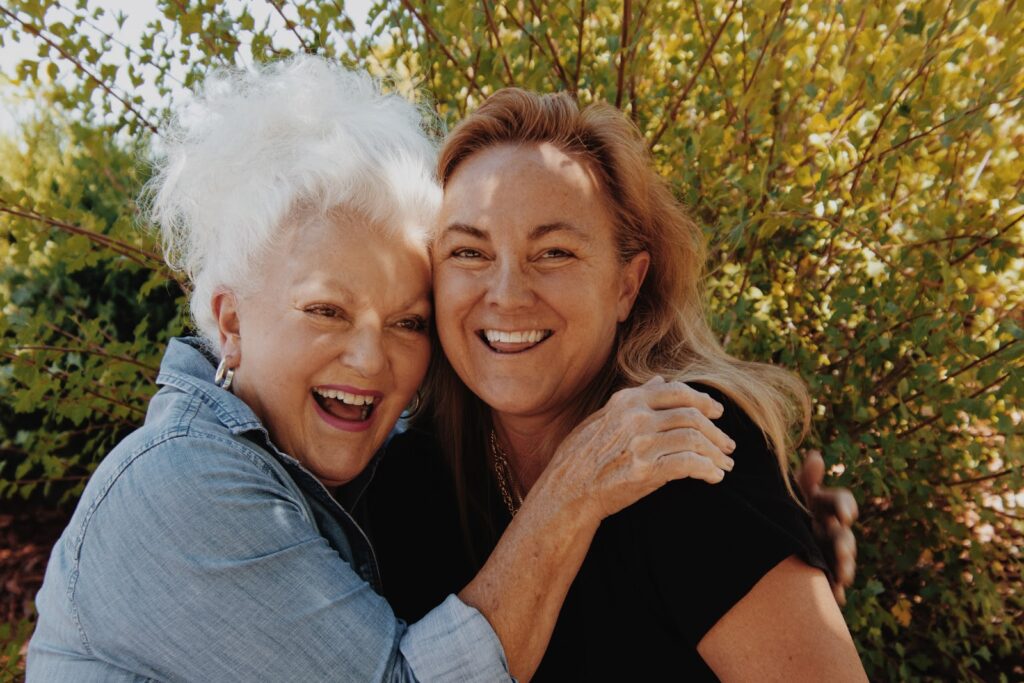The transition from living an independent life into living in an assisted living community is probably the biggest transition seniors will make in their older years. Everyone in the process will inevitably experience worry and anxiety, but it will especially be difficult on your loved one who is moving.
Luckily, there are a lot of ways you can play an active role in this transition. Finding ways to make it easier for your loved one will help reduce everyone’s anxiety. Before long, your loved one can feel like they’re home with your assistance.

How to Transition to Assisted Living With Ease
Tip #1: Make Them Part of the Conversation
Talking to your loved one about their quality of life isn’t always an easy conversation to have. However, you must have the conversation to ensure that their safety and health are at the top of the priority list.
It’s also vital that you make them part of that conversation. You don’t want your loved one to feel that they are being left out of conversations that concern them and their way of life. Discuss with them some of the benefits of moving to an assisted living community because there are many. When having the conversation, make sure to really listen to them when they voice their concerns and anxieties.
Tip #2: Take Time to Choose the Right Community
Assisted living isn’t a temporary solution. If you don’t choose the right place, it isn’t as simple as picking up and moving to the next one until you find a good fit for your loved one. Put the time in at the beginning of the transition to do your research and make sure the community is a good fit.
As part of your research, visit the community and talk to leadership and caregivers, note the cleanliness and friendliness of staff, and try to determine whether residents look content in their environment. Ideally, have the conversation with your loved one before you need to so you can avoid having to find a place with immediate openings without doing research.
Tip #3: Pack Efficiently
Helping your loved one downsize is a feat, but it can be done with a little patience, love, and organization. When deciding what to keep from their years of collected belongings, make sure to keep a list of things that will not only fit in their new home but also things that will make it feel like home. Not everything has to go right away. After all, it is a transition. Start with the things they will need in their new home, and you can deal with the rest when they’re settled.
Tip #4: Make It Look Like Home
Leaving your home is hard. That’s why it’s important to do everything you can to make the new place feel like home as much as possible as quickly as possible. Display sentimental objects prominently, including family photographs. Use familiar things like small pieces of furniture or bedding. Hang curtains if there are windows. Do everything you can to safely bring some of the touches of home to their new residence.
Tip #5: Get to Know the Neighbors
One of the many benefits of assisted living is that your loved one will be able to socialize regularly with other residents. Encourage them to get acquainted with their neighbors and remind them that they were once transitioning, too. Perhaps they could be not only good friends but a good resource for support and information.
Tip #6: Spend Time with Them
Sometimes residents can feel abandoned during their transition to assisted living. To help them, create a regular schedule for visiting, especially at the beginning of their transition. Give them a sense of security by knowing they can count on you to be there at a certain time each week.
You can have dinner with them, you can play a board game or work on a puzzle together, or you can simply sit and chat with them and catch them up on all the news. Spending time with them will remind your loved one that they haven’t been forgotten.
Keep in mind that no two people are alike, so no two people will transition to assisted living the same way. The move may be a difficult one, but it can be easier with family and friends’ help and support.
To help make the right decisions for the care of your loved one, contact one of our specialists at Elder Care Alliance today. We can help you schedule a visit to see for yourself how Elder Care Alliance can help your loved one easily transition into assisted living.




















